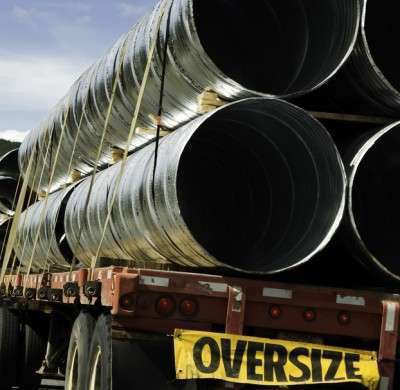What are the consequences of changing truck weight limits on federal highways? Congress wants to know, and the Federal Highway Administration has extended the deadline and comment period on a matter that divides the trucking industry.
The Comprehensive Truck Size and Weight Limits Study is mandated by MAP-21, the current federal highway funding package. FHWA has held two public meetings on the matter, and had asked for comments by Jan. 3, 2014. The extension to Jan. 17 “is based on input received from DOT stakeholders” that the original closing date does not provide sufficient time for submission of comments.
Late-filed comments received after the deadline will be considered to the fullest extent practicable until Jan. 31, according to the Federal Register notice.
Congress has been pushed by shipper groups to increase truck weights, which would improve productivity and reduce the number of trucks on the road, supporters argue. Legislation, for and against truck weight increases, respectively, has been introduced in several recent sessions.
Related: Truck weight limits debated as Congress develops freight plan
Truckers likewise are divided. The American Trucking Associations supports allowing states to decide whether or not to increase truck weight limits, based on local shipping needs and the condition of the infrastructure. ATA President and CEO Bill Graves said that, with the MAP-21 study provision, Congress “once again kicked the can down the road” with respect to truck productivity.
The Owner-Operator Independent Drivers Association, along with the Teamsters and highway safety groups, oppose any increase, citing damage to roads and bridges and safety risks.









